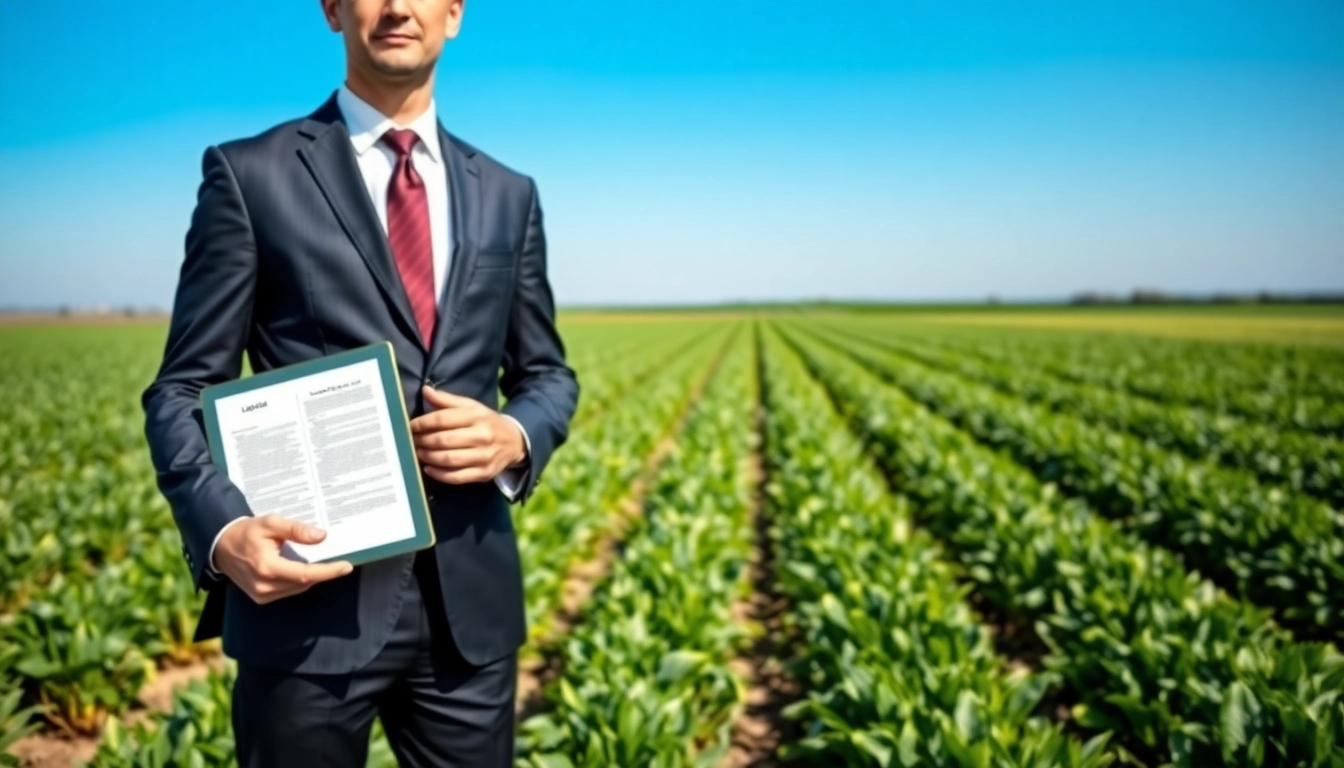Understanding the Role of an Agriculture Lawyer
What is an agriculture lawyer?
An agriculture lawyer specializes in the legal aspects associated with farming, agricultural practices, and agribusiness. Their expertise encompasses a range of issues impacting the agricultural sector, from land ownership disputes and environmental regulations to contracts with suppliers and buyers. Given the unique challenges that farmers and agribusinesses face, having a knowledgeable agriculture lawyer becomes essential to navigate the complex legal landscape effectively.
Core responsibilities of agriculture lawyers
Agriculture lawyers perform a myriad of duties to safeguard the interests of their clients. Their responsibilities include:
- Consulting clients on legal issues related to farming and agriculture.
- Drafting and reviewing contracts, including land leases, purchase agreements, and employment contracts.
- Representing clients in court or during mediations for disputes involving land use, environmental concerns, and liability claims.
- Advising on compliance with federal, state, and local agricultural regulations.
- Assisting with estate planning and succession planning for agricultural businesses.
How agriculture lawyers benefit farmers
The benefits of hiring an agriculture lawyer extend beyond mere legal representation. Here are several key advantages:
- Protection of Rights: An agriculture lawyer ensures that farmers’ rights are defended regarding property ownership and usage.
- Regulatory Compliance: They help farmers comply with complex agricultural laws and regulations, minimizing the risk of penalties.
- Dispute Resolution: Agricultural disputes can be costly and time-consuming. Having a lawyer can facilitate quicker resolutions, preserving both time and resources.
- Financial Guidance: Agriculture lawyers can provide advice on legal avenues that can lead to cost savings for farmers.
Common Legal Issues in Agriculture
Land use and property rights challenges
Land use disputes are prevalent in agriculture, where issues can arise concerning ownership, easements, and zoning. Farmers may face challenges concerning property rights, especially if there is a dispute with neighboring landowners or local governments. Understanding land tenure laws and property rights is essential for farmers to secure their land and mitigate risks.
Environmental regulations affecting agriculture
With increasing focus on sustainability, farmers must navigate a web of environmental regulations. These may involve water usage, pesticide application, and waste management. Non-compliance can result in significant fines or restrictions on farming activities. An agriculture lawyer can ensure that a farming operation adheres to these regulations while exploring sustainable practices that can also be beneficial for business.
Contracts and agreements in farming
Farming operations heavily rely on contracts—whether leasing land, purchasing equipment, or selling product. Issues can arise from poorly drafted agreements, misunderstandings, or breaches of contract. An agriculture lawyer can review and negotiate contracts to protect farmers’ interests and ensure clarity in business dealings.
Choosing the Right Agriculture Lawyer
What to look for in an agriculture lawyer?
Finding the right agriculture lawyer is essential for effective legal guidance. Here are key factors to consider:
- Experience: Look for a lawyer with specific experience in agricultural law and a strong understanding of the local agriculture market.
- Reputation: Research the lawyer’s reputation in the agricultural community and seek referrals from other farmers.
- Communication: Ensure the lawyer communicates clearly and effectively and is receptive to client concerns.
- Adaptability: The ability to adapt to changes in agricultural law and market conditions is crucial.
Questions to ask during consultations
Preparing a list of questions for consultations can help assess the suitability of the agriculture lawyer. Consider asking:
- What experience do you have specific to my type of agriculture?
- Can you provide examples of similar cases you have handled?
- What is your approach to resolving disputes in agricultural law?
- How do you stay updated on changes in agricultural regulations?
How to evaluate their experience in the agriculture sector
To assess a lawyer’s experience in agriculture, consider the following:
- Review past case studies or outcomes they have achieved for other agricultural clients.
- Check their involvement in agricultural trade associations or legal associations focused on agriculture.
- Discuss their ongoing education in agricultural law to ensure they are current on modern issues affecting the sector.
Cost Considerations When Hiring an Agriculture Lawyer
A breakdown of typical fees and charges
Understanding the potential costs associated with hiring an agriculture lawyer is crucial. Costs can vary based on experience, complexity of the case, and location. Common fee structures include:
- Hourly rates: Many attorneys charge by the hour, typically ranging from $150 to $500 depending on experience and location.
- Flat fees: Certain services, such as drafting a contract, may be offered at a flat rate.
- Contingency fees: In some cases, lawyers may work on a contingency basis where they receive a percentage of the settlement or damages awarded.
Understanding retainer agreements
A retainer agreement is a way to secure a lawyer’s services for ongoing legal needs. It typically involves an upfront payment that serves as a security deposit against future services. Understanding the terms of a retainer agreement is critical, including how lawyer time is charged and what services are covered.
Cost-effective tips for farmers
Farmers can take several steps to manage costs when hiring an agriculture lawyer:
- Prioritize needs: Evaluate legal needs and prioritize them to avoid unnecessary consultations.
- Document thoroughly: Keep organized records of all interactions and contracts to maximize the effectiveness of consultations.
- Research and compare: Compare multiple attorneys’ fees, services, and approaches before making a decision.
Future Trends in Agricultural Law
Emerging legal challenges in agriculture
The agricultural sector is constantly evolving, and so too are the legal challenges it faces. For instance, issues surrounding genetically modified organisms (GMOs), water rights, and labor regulations are expected to gain more prominence. Farmers must stay informed about these developments as they could impact their operational viability.
The impact of technology on agricultural law
Technological advancements, such as precision farming and automated systems, prompt new legal considerations around intellectual property rights, data privacy, and liability for autonomous farm equipment. Legal representation will need to adapt to address these burgeoning issues effectively.
How legislation is evolving for sustainable farming
There is an increasing push for sustainable practices in agriculture, which is shaping new legislations. Laws addressing climate change, soil health, and biodiversity are being developed, and farmers will need legal counsel to navigate these changes while maintaining compliance and securing funding opportunities available for sustainable initiatives.



